Fatal Electrocution Accidents In Texas
Electrocution accidents at construction sites are a grim reality that can lead to devastating consequences, including loss of life. In 2020, the National Fire Protection Association (NFPA) reported that construction workers rank high among professions vulnerable to accidental electrocution-related fatalities. The Census of Fatal Occupational Injuries (CFOI), supported by the US Bureau of Labor Statistics, provides the following data:
- In the year 2020, a total of 126 workers lost their lives due to electrical exposure.
- Among these tragic incidents, 44 percent of the victims who suffered fatal electrocution injuries were employed in construction and extraction occupations.
Electrocution Accident Lawyers Near Me
At Miller Weisbrod Olesky, we understand the devastating impact fatal and wrongful death construction accidents, particularly those caused by electrocution. Our dedicated Texas electrocution wrongful death lawyers have a track record of fighting for the rights of families of victims in fatal electrocution accidents at construction sites and helping them recover the maximum damages they are entitled to under the law.
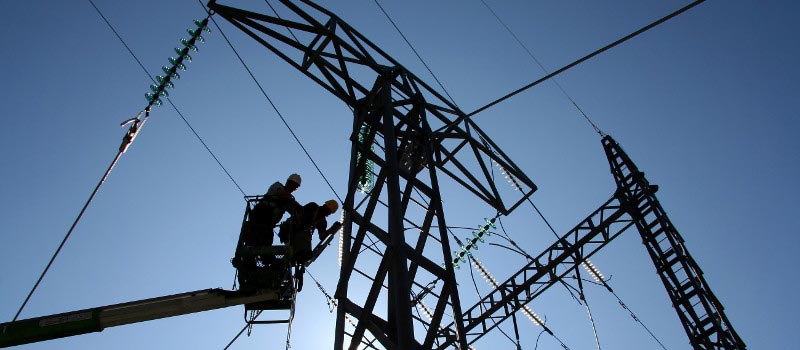
Fatal Electrocution Accidents Due to "Live Wire Contact" in Texas
Construction site accidents due to contact with live electrical wires are a significant safety concern in the Texas construction industry. When workers come into contact with live electrical wires, power lines, or exposed electrical components, it can lead to severe injuries, including electrocutions, burns, and even fatalities. Understanding the causes and implementing preventive measures can help reduce the occurrence of such accidents.
OSHA standard on contact with power lines and live electrical wires.
Causes of Accidents Due to Contact with Live Electrical Wires
- Lack of Proper Training: Insufficient training on electrical safety and failure to recognize electrical hazards can expose workers to risks when working near live electrical sources.
- Improper Equipment Use: Misusing electrical tools, machinery, or equipment, or using damaged or defective electrical cords, increases the likelihood of accidents.
- Inadequate Grounding and Isolation: Failure to properly ground electrical systems or equipment can leave workers vulnerable to electric shocks.
- Unmarked Hazards: The absence of warning signs and inadequate marking of electrical hazards may lead to unsuspecting workers coming into contact with dangerous electrical sources.
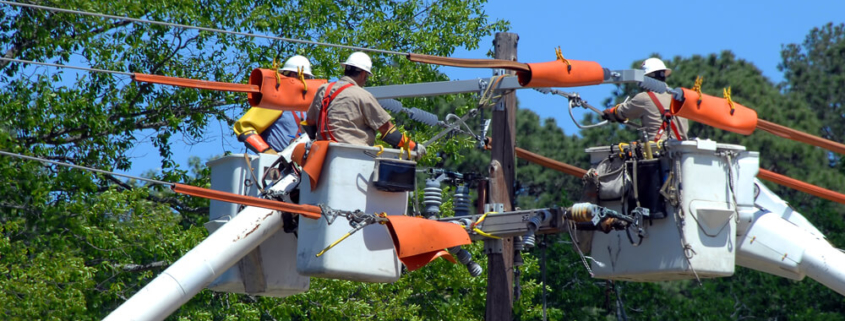
Preventive Measures to Enhance Safety
- Comprehensive Training: Workers should undergo thorough training in electrical safety, including hazard identification, proper use of equipment, and emergency procedures.
- Regular Inspections: Regular inspections of electrical equipment and machinery should be conducted to identify and rectify any defects or malfunctions promptly.
- Proper Grounding and Isolation: Electrical systems and equipment should be adequately grounded and isolated to prevent electric shocks.
- Use of Personal Protective Equipment (PPE): Workers should wear appropriate PPE, such as insulated gloves, boots, and clothing, when working near live electrical sources.
- Hazard Identification and Marking: All electrical hazards and potential sources of contact with live electrical wires should be identified and clearly marked on construction sites.
- Lockout-Tagout Procedures: When work requires lines to be de-engergized, a lock-out tag-out procedure should be followed to ensure someone does not accidentally or mistakenly turn the power back on the electrical components and wires.
Fatal Electrocution Accidents Due to "Faulty Electrical Equipment" in Texas
When electrical tools, machinery, or equipment malfunction at a construction site in Texas, it can lead to serious injuries, electrocutions, fires, and other hazardous incidents. Our skilled Texas fatal electrocution attorneys at Miller Weisbrod Olesky can identify the causes and prove the negligence of liable parties that led to your loved one’s loss of life in a faulty electrical equipment accident.
OSHA standard on Faulty Electrical equipment.
Causes of Accidents Due to Faulty Electrical Equipment
- Lack of Maintenance: Inadequate or irregular maintenance of electrical tools and machinery can lead to wear and tear, malfunctions, and potential hazards.
- Defective Components: Electrical equipment that contains defective or substandard components may not function properly, leading to accidents.
- Inadequate Insulation: Insufficient or damaged insulation in electrical cords and equipment can cause electrical shocks or short circuits.
- Improper Use: Misusing electrical equipment or not following the manufacturer's guidelines for safe operation can result in accidents.
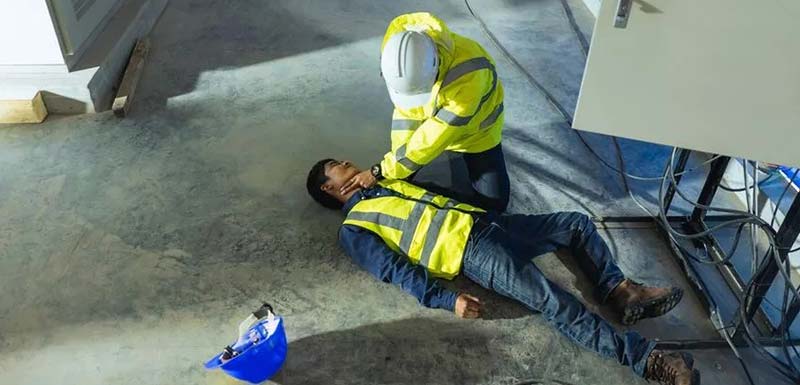
Preventive Measures to Enhance Safety
- Regular Inspections and Maintenance: Implement a robust maintenance schedule for electrical tools and machinery to identify and rectify defects promptly.
- Quality Assurance: Use reliable and reputable suppliers for electrical equipment to ensure that the components meet safety standards.
- Training and Supervision: Provide thorough training to workers on the proper use and handling of electrical equipment. Ensure that workers are supervised to ensure adherence to safety protocols.
- Insulation and Protection: Inspect electrical cords regularly for damage and replace them if needed. Encase electrical components in proper insulation to prevent electrical shocks.
- Equipment Testing: Conduct regular testing of electrical equipment to verify functionality and safety.
Fatal Electrocution Accidents Due to "Improper Grounding" in Texas
At the construction sites in Texas, grounding plays a key role in electrical safety, providing a path for electrical currents to dissipate harmlessly into the ground. When electrical systems or equipment are inadequately grounded, workers are at risk of electric shock, electrocution, and other serious injuries. Identifying the causes and implementing preventive measures can help minimize the risks associated with improper grounding.
OSHA standard on Electrical Grounding at construction sites.
Causes of Accidents Due to Improper Grounding
- Neglecting Grounding Procedures: Failure to follow proper grounding procedures when connecting electrical equipment or systems can create dangerous electrical conditions.
- Damaged or Defective Grounding Equipment: Faulty grounding equipment or damaged grounding conductors can compromise the effectiveness of the grounding system.
- Inadequate Training: Insufficient training on proper grounding practices and safety protocols may lead to mistakes or oversights in grounding procedures.
- Temporary Electrical Installations: In temporary construction setups, grounding may be overlooked or not given due importance, increasing the risk of accidents.
Preventive Measures to Enhance Safety
- Comprehensive Training: Workers must receive thorough training in proper grounding procedures, emphasizing the importance of grounding in electrical safety.
- Regular Inspections: Conduct regular inspections of grounding equipment and conductors to identify and rectify any damage or defects promptly.
- Compliance with Codes and Standards: Ensure that all grounding practices comply with relevant electrical codes and industry standards.
- Equipment Testing: Regularly test electrical equipment to verify that grounding is working effectively.
- Ground Fault Circuit Interrupters (GFCIs): Use GFCIs to provide additional protection against electrical shocks and ground faults.
Fatal Electrocution Accidents Due to "Lack of Proper Training" in Texas
Inadequate training in electrical safety can lead to construction workers being unaware of potential electrical hazards and unprepared to handle electrical equipment properly. As a result, accidents such as electrical shocks, burns, and even fatal electrocutions can occur at construction sites in Texas. OSHA’s standard on proper training for electrical work should be followed to prevent fatal electrocution accidents on construction sites in Texas.
Causes of Electrocution Accidents Due to Lack of Proper Training
- Unidentified Electrical Hazards: Workers may not be adequately trained to identify electrical hazards at construction sites, increasing the risk of accidental contact with live electrical wires or equipment.
- Incorrect Use of Electrical Tools: Inadequate training may lead to workers using electrical tools and equipment improperly, leading to accidents.
- Insufficient Knowledge of Safety Protocols: Lack of knowledge about electrical safety protocols, such as lockout/tagout procedures, can result in workers unintentionally energizing electrical systems.
- Inadequate Emergency Response: Workers may not know how to respond effectively in the event of an electrical accident, delaying the provision of medical assistance.
Preventive Measures Through Comprehensive Training
- Electrical Safety Training: Workers should undergo thorough electrical safety training, including hazard identification, lockout/tagout procedures, and safe handling of electrical equipment.
- Equipment-Specific Training: Training should cover the proper use, maintenance, and safety precautions for all electrical tools and machinery used on the construction site.
- Emergency Response Training: Workers must be trained to respond promptly and appropriately to electrical accidents, including providing first aid and contacting emergency services.
- Periodic Refresher Courses: Regularly updating and reinforcing training with refresher courses ensures that workers stay informed about the latest safety protocols.
- Supervision and Mentorship: New and less-experienced workers should be supervised and mentored by experienced colleagues to ensure they follow safety guidelines.
Fatal Electrocution Accidents Due to "Lack of Proper PPE Equipment" in Texas
Personal Protective Equipment (PPE) plays a key role in protecting construction workers from electrical hazards, including electric shocks, burns, and fatal electrocutions. When workers at construction sites in Texas are not provided with or do not use the appropriate PPE, they become vulnerable to serious injuries. Our proven and capable fatal electrocution accident lawyers in Texas will collect evidence and establish liability of the at-fault parties in the wrongful death of your loved one in a construction site electrocution accident.
OSHA standard on proper PPE equipment at construction sites.
Causes of Electrocution Accidents Due to Lack of Proper PPE Equipment
- Inadequate PPE Selection: Employers may not provide workers with PPE specifically designed for electrical hazards, such as insulated gloves, boots, or clothing.
- Improper Use of PPE: Workers may not use PPE correctly, such as failing to wear insulated gloves when handling electrical equipment.
- Insufficient Access to PPE: The unavailability of proper PPE on the construction site may deprive workers from using it when needed.
- Lack of PPE Training: Workers may not receive adequate training on the importance of using PPE and its correct application.
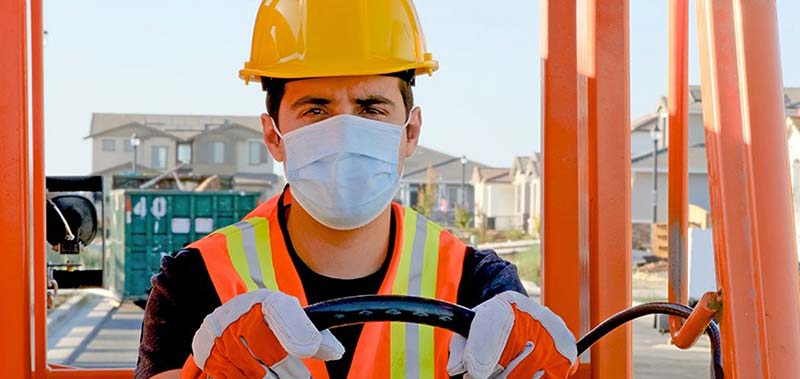
Preventive Measures Through Effective Use of PPE
- Comprehensive PPE Training: Workers should undergo thorough training on the importance of using PPE, the correct selection of PPE for electrical hazards, and proper PPE use.
- Supply and Accessibility: Employers must ensure an adequate supply of appropriate PPE and make it easily accessible to all workers on the construction site.
- Regular Inspections: Regularly inspect PPE to ensure it is in good condition and replace damaged or worn-out equipment promptly.
- PPE Compliance: Enforce the use of PPE through consistent monitoring and disciplinary action if workers fail to comply with safety guidelines.
- Periodic Refresher Courses: Reinforce PPE training through periodic refresher courses to remind workers of its importance.
Fatal Electrocution Accidents Due to "Unmarked Hazardous Areas" in Texas
When construction sites in Texas are not adequately marked to warn workers of potential electrical hazards, the risk of accidental contact with live electrical wires or equipment increases significantly. As a result, workers may be exposed to electric shocks, burns, and even fatal electrocutions. Insightful guidance on electrocution accidents at hazardous construction sites can be found in this article published by the CDC.
Causes of Electrocution Accidents Due to Unmarked Hazardous Areas
- Lack of Warning Signs: Construction sites may not have proper warning signs or caution tape to alert workers to the presence of live electrical wires or equipment.
- Temporary Electrical Installations: In temporary construction setups, electrical hazards may not be marked or prioritized, leading to unsuspecting workers coming into contact with dangerous electrical sources.
- Inadequate Communication: Failure to effectively communicate electrical hazards to all workers on the construction site can lead to avoidable accidents.
- Non-Compliance with Regulations: Construction sites may fail to adhere to safety regulations that require the marking of electrical hazards.
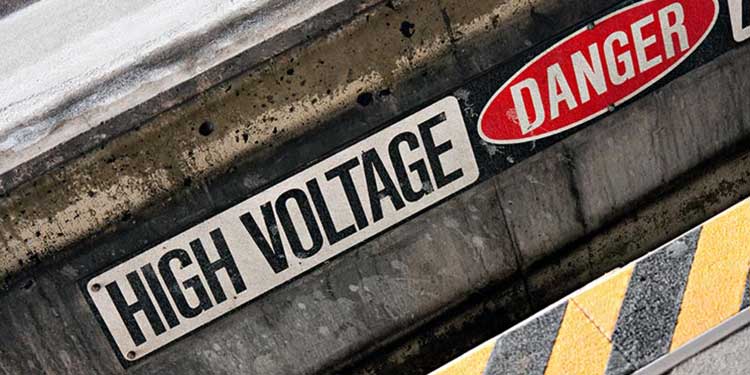
Preventive Measures through Proper Marking and Hazard Identification
- Site Evaluation: Conduct a thorough evaluation of the construction site to identify potential electrical hazards and hazardous areas.
- Warning Signs and Caution Tape: Place clear and visible warning signs, caution tape, or barricades around hazardous areas to alert workers of potential electrical risks.
- Training and Communication: Ensure that all workers are educated about the importance of hazard identification and the significance of warning signs. Effective communication is key to promoting a safe working environment.
- Temporary Installations: Treat temporary electrical installations with the same importance as permanent ones, ensuring they are marked and secured appropriately.
- Regular Inspections: Regularly inspect the construction site to verify that all hazardous areas are adequately marked and that warning signs are in place and visible.
OSHA Regulations to Prevent Construction Site Electrocution Accidents and Fatalities in Texas
To safeguard construction workers' well-being, the Occupational Safety and Health Administration (OSHA) has established stringent regulations focused on preventing construction site electrocution accidents and fatalities. At Miller Weisbrod Olesky, our experienced Texas fatal electrocution accident attorneys will investigate and prove OSHA violations committed by the negligent parties that resulted in the wrongful death of your loved one at a construction site.
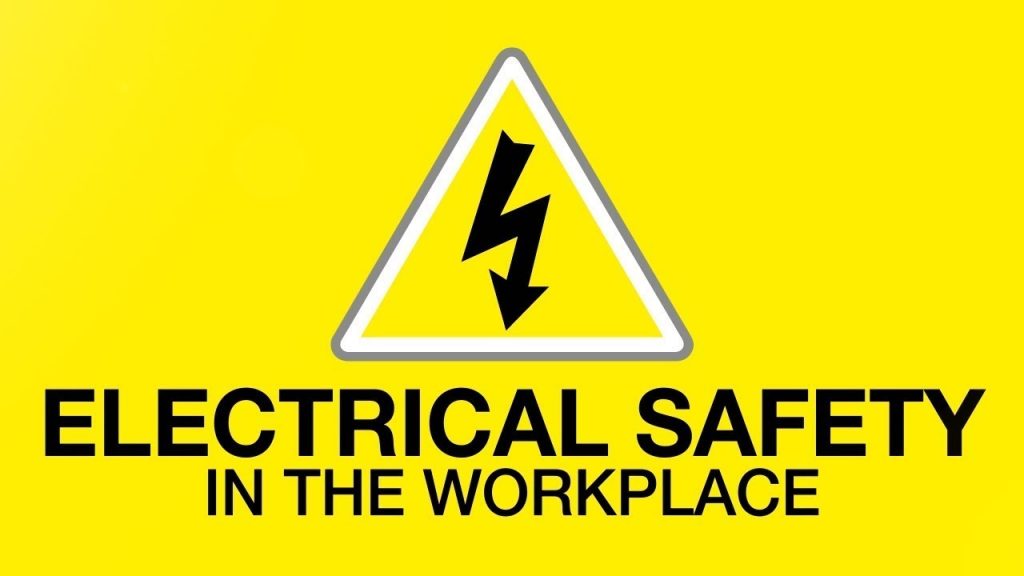
Electrical Hazard Recognition - (29 CFR 1926 Subpart K)
OSHA's Subpart K addresses electrical safety in construction and emphasizes the importance of recognizing electrical hazards. Employers must ensure that workers are trained to identify electrical hazards and understand the appropriate safety measures to minimize risks. This includes recognizing live electrical wires, overhead power lines, and the potential for electrical shock.
Electrical Equipment Safety - (29 CFR 1926.403)
OSHA's regulations pertaining to electrical equipment require that all electrical installations and equipment be approved for their specific use and be maintained in safe working conditions. Any damaged or defective equipment should be removed from service immediately, and replacement should meet approved standards. Based on this, extension cords and temporary electrical installations should be utilized with care and in compliance with OSHA guidelines.
Lockout/Tagout Procedures - (29 CFR 1926.417)
Lockout/Tagout procedures are critical to preventing accidental energization of electrical equipment during maintenance or repair. OSHA mandates that employers develop and implement lockout/tagout procedures to control hazardous energy sources, including electrical systems. These procedures ensure that workers are protected from unexpected electrical startup and potential electrocution accidents.
Grounding and Bonding - (29 CFR 1926.404)
OSHA requires proper grounding and bonding of electrical systems and equipment to prevent electrical shocks and electrocutions. Electrical circuits, conductors, and metal enclosures must be effectively grounded to dissipate electrical currents safely into the ground. Pertaining to this, bonding ensures continuous conductivity and minimizes the risk of potential differences that could lead to electric shocks.
Working Near Overhead Power Lines - (29 CFR 1926.1408)
Working near overhead power lines presents a significant risk of electrocution accidents. OSHA's regulations mandate that workers maintain a safe distance from energized power lines based on their voltage levels. In addition, employers must implement measures such as using warning signs, safety observers, and specialized insulated equipment when working near power lines.
Personal Protective Equipment - (29 CFR 1926.28)
OSHA regulations emphasize the use of appropriate Personal Protective Equipment (PPE) to protect workers from electrical hazards. Employers must provide and enforce the use of PPE, including insulated gloves, boots, clothing, and safety helmets when working with or near electrical systems.
Training and Education - (29 CFR 1926.21)
Comprehensive training and education are crucial for preventing electrocution accidents on construction sites. Employers must provide workers with proper training on electrical safety, hazard recognition, and the correct use of equipment and PPE. Regular safety meetings and refresher courses help reinforce safety protocols and ensure continued compliance with OSHA regulations.
Types of Construction Equipment and Tools that can Cause Electrocution Injuries and Fatalities
Construction equipment and tools that involve electricity can pose significant risks of electrocution injuries and fatalities on construction sites in Texas. A report published in the Electronic Library of Construction Occupational Safety and Health (elCOSH) identifies the use of power tools as a hazard for construction workers, which can lead to worker fatalities. In the experience of our Texas fatal electrocution accident lawyer, here are some common types of construction equipment and tools that can cause electrocution accidents:

- Power Tools: Various power tools, such as drills, saws, grinders, and nail guns, can become hazardous if electrical cords are damaged or not properly insulated. Accidental contact with exposed wires or faulty plugs can lead to electric shocks and electrocutions.
- Extension Cords: Improper use or misuse of extension cords can create hazards. Overloading extension cords with high-powered tools or leaving them exposed to water or damp conditions increases the risk of electric shocks.
- Generators: Construction sites often use generators to provide temporary power. If not correctly grounded and operated, generators can produce electrical hazards that may lead to electrocution accidents.
- Welding Equipment: Welding machines use high-voltage electricity to produce arcs for welding. Accidental contact with the welding electrode or live parts can result in serious electrical injuries.
- Cranes and Hoists: Electrical systems in cranes and hoists can become hazardous if damaged or improperly maintained. Contact with live wires or malfunctioning electrical controls can lead to electrocutions.
- Power Lines and Overhead Cables: Construction workers can be at risk of electrocution when working near overhead power lines and electrical cables. Accidental contact with energized power lines can be fatal.
- Temporary Lighting: Inadequate or damaged temporary lighting at construction sites can expose workers to electrical hazards and potential electrocution.
- Concrete Vibrators: Electrical concrete vibrators are used to remove air bubbles and settle concrete. Damaged cords or equipment can lead to electrical accidents during their operation.
- Electric Saws: Electric saws, including circular saws and chainsaws, can be hazardous if not properly grounded or if used near wet or damp surfaces.
- Electric Pumps: Electrical pumps used for dewatering or transferring fluids can pose electrocution risks if not maintained and operated correctly.
Which Parties Can Be Held Liable for Construction Site Electrocution Fatalities in Texas?
In cases of construction site electrocution fatalities in Texas, multiple parties may be held liable for their role in the accident. The specific circumstances of each case will determine who can be held responsible. Some of the parties that our Texas fatal electrocution accident lawyers will investigate for potential liability include:
- Construction Companies: The primary responsibility for maintaining a safe work environment lies with the construction company. If the company failed to implement proper safety measures or provided inadequate training to workers, they may be held liable for the electrocution accident.
- General Contractors and Subcontractors: General Contractors and subcontractors working on the construction site may share responsibility for safety protocols and ensuring proper procedures are followed. If their actions or negligence contributed to the electrocution accident, they may be held liable.
- Property Owners: In some cases, the property owner may be held liable for failing to ensure a safe construction site. This is particularly relevant when the owner retained control over safety decisions or knew about hazardous conditions but failed to address them.
- Equipment Manufacturers: If faulty or defective electrical equipment was a contributing factor in the accident, the manufacturer of the equipment may be held liable for the electrocution fatality.
- Engineers and Design Professionals: In cases where the electrocution accident occurred due to faulty electrical design or engineering, the responsible professionals may be held liable for their negligence.
- Electricians and Other Workers: If the accident resulted from the actions or negligence of specific workers, such as electricians or other subcontractors, they may be held personally responsible for their role in the incident.
- Utility Companies: If the electrocution was caused by contact with live power lines maintained by a utility company, they may be held liable if their negligence or failure to mark the lines properly contributed to the accident.
- Third Parties: Sometimes, third parties unrelated to the construction project, such as drivers of vehicles that caused damage to electrical systems or equipment may be held liable for the electrocution fatality.
At Miller Weisbrod Olesky, our attorneys understand the devastating impact of fatal electrocution accidents on Texas construction sites. We are committed to providing compassionate support and fierce advocacy for the families of victims who have lost their lives due to another's negligence. Through thorough investigation, expert analysis, and strategic legal representation, we will seek to prove liability and hold all responsible parties accountable for their actions.
The goal of our experienced Texas fatal electrocution accident lawyers is to secure the maximum compensation possible for our clients while promoting safety and accountability in the construction industry. Reach out to us today to schedule your free consultation with our legal team.
The Leader In Construction Accident Litigation With A Record Of Multi-Million Dollar Settlements And Verdicts

With a 30-year history heading the Construction Accident Department of Miller Weisbrod Olesky, firm partner Clay Miller has a proven record of holding construction companies accountable and achieving multi-million dollar settlements and court verdicts for his clients. Clay has handled construction accident cases in all major cities in Texas and numerous smaller counties. In one recent trial, Clay won a construction accident verdict of $26,500,000 for his client who suffered a spinal cord injury after a construction accident fall.
Clay has been consistently listed in Super Lawyers as one of the Best Lawyers in Texas, published in Texas Monthly, for over 15 years.
Clay is a past president of the Dallas Trial Lawyers’ Association and served as Chair of the Advocates for the Texas Trial Lawyer Association where he continues to serve on the board of directions. Clay is also a member of the elite American Board of Trial Advocates (ABOTA) limited to a select group of trial lawyers who have tried to a jury verdict a significant number of cases and who are recognized for their professionalism.
Clay is regularly invited to speak to Trial Lawyer Groups around Dallas, Houston, San Antonio, Austin, and across the state of Texas on the topics of construction accidents, trial tactics in complex construction cases and techniques to investigate and gather evidence in construction accidents, picking a jury in construction accident cases, as well as how to prepare a winning legal and trial strategy in Construction Accident Cases throughout Texas.
Our construction accident legal team includes Josh Birmingham, who is currently on the Dallas Trial Lawyers Board of Directors and served as the president of the Mesquite Bar Association for four years. Josh was named Thomson Reuters | Texas Super Lawyers Rising Star in 2016 and 2017.
We also have on our team Michael Orth, a board certified personal injury trial lawyer who has spent the last decade representing injured Texans and their families. Michael’s success in scores of personal injury cases across federal and state courtrooms has earned him the coveted Board Certification in Personal Injury Trial Law by the Texas Board of Legal Specialization.
Led by a formidable legal team with an extraordinary record of court verdicts and settlements in construction accident cases, Miller Weisbrod Olesky is regularly recognized by the US News and World Report as one of the top injury law firms in the United States.
Miller Weisbrod Olesky Texas Construction Accident Lawyers
Clay Miller

Clay is Board Certified in Personal Injury Trial Law by the Texas Board of Legal Specialization. Clay has practiced solely in the field of catastrophic injury and wrongful death since graduating from law school. His practice has been limited to the representation of victims. Over the past twenty-four years, Clay has successfully settled or tried to verdict cases in the areas of vehicular negligence, medical malpractice, construction site accidents, workplace injury, premises liability, and commercial trucking and a nationwide business loss case (suits filed in a dozen different states) involving defective truck engines sold to trucking companies.
Clay's most recent victories include when general contractor ignored its own requirements for safety training of a subcontractor workforce. As a result, our client never received training in how to properly use his fall protection equipment. Our client fell two stories and hit the ground because the equipment was hooked up improperly. He was left paralyzed. When the general contractor refused to tender their insurance limits, Construction Accident Attorney, Clay Miller tried the case in Texas, and obtained a verdict of $26,500,000, including $15,000,000 of punitive damages.
Clay was raised in Lewisville, Texas and completed his undergraduate degree in Finance at
Texas A & M University. Following graduation from Southern Methodist University School of law, Clay worked for two Dallas firms representing victims. In 1998, Clay began his own practice before forming his current partnership. In addition to his law practice, Clay has lectured at seminars and published in the areas of construction accidents, jury selection techniques, medical negligence, trucking accidents and settlement tactics.
He is active in local and statewide trial lawyers' associations including serving as the Chair of the Advocates for the Texas Trial Lawyers' Association in 2002 and remains on the Board of Directors. Clay served as President of the Dallas Trial Lawyers Association from 2008-2009. He has also been a member of the American Board of Trial Advocates (ABOTA) since 2014.
Education
- Southern Methodist University School of Law - Dallas, Texas
- Texas A&M University - Finance - College Station, Texas
Areas of Practice
Associations & Memberships
- State Bar of Texas
- State Bar of New Mexico
- State Bar of Colorado
- American Board of Trial Advocates (ABOTA)
- Texas Trial Lawyers Association
- Dallas Trial Lawyers’ Association
- American Association of Justice
Josh Birmingham

Josh Birmingham was born in Las Cruces, New Mexico and raised in the small oil town of Hobbs, New Mexico. He graduated from the University of Nebraska in 2004 where he was a part of the Big 12 champion baseball team and was a College World Series participant.
He obtained his law degree from the University of Tulsa: College of Law in 2007 where he earned numerous awards in Mock Trial and Negotiation competitions.
Josh began his career at another prominent law firm where he fought for the victims of other’s negligence.
After 9 years Josh left being a trial lawyer and became an executive for a healthcare consulting firm but his passion for helping others in the law quickly pulled him back. Josh has tried numerous cases in both state and federal court. Josh began his first day with Miller Weisbrod Olesky in trial with Clay Miller representing an injured construction worker, Fernando Canales. Josh second chaired the trial and handled all of the medical expert testimony in the case.
Click Here: for complete verdict information
Josh is a member of the State Bar of Texas, American Association of Justice, Texas Trial Lawyers Association, Dallas Trial Lawyers Association, and Dallas Association of Young Lawyers. He is currently on the Dallas Trial Lawyers Board of Directors and served as the president of the Mesquite Bar Association for four years. Josh was named Thomson Reuters | Texas Super Lawyers Rising Star in 2016 and 2017.
Josh accredits his passion toward helping others to his mother Pam Parkinson, a nurse and business woman, and his father Ray Birmingham a college baseball coach.
Education
- University of Nebraska
- University of Tulsa - School of Law
Areas of Practice
Associations & Memberships
- American Association of Justice:
Member
- Texas Trial Lawyers Association:
Member
- Dallas Trial Lawyers Association:
Member
Board of Directors - Dallas Association of Young Lawyers:
Member
- Mesquite Bar Association:
Member
Michael Orth

Michael is a board certified personal injury trial lawyer who has spent the last decade representing injured Texans and their families. Born and raised in Dallas, Michael attended Texas A&M University where he earned a Bachelor of Science in Political Science. Following graduation, Michael worked in sales for one of the largest trucking companies in the United States. While working in the trucking industry, Michael saw the dangers that can and do occur when companies put profits before safety, and safety is not provided its proper place at the table. It was at this point Michael decided to pursue a career in law to help those harmed by the negligence of others.
Michael attended the University of Houston Law Center, where he served as a Senior Articles Editor for the Houston Journal of International Law. Throughout law school, Michael clerked at one of the 5 law firms that represented the State of Texas against Big Tobacco, where he worked on cases ranging from catastrophic crane collapses, to sexual abuse cases to environmental class action lawsuits. Most importantly, Michael learned the law could be used to do a lot of good in peoples’ lives, and could help those who had been injured because of the carelessness of others.
After obtaining his law license, Michael moved to South Padre Island and practiced personal injury law in the Rio Grande Valley. While practicing in South Texas, Michael tried nearly 20 cases in federal and state courtrooms across South Texas, consistently obtaining verdicts significantly higher than the insurance companies’ offers. As a result of his success in the courtroom, Michael is Board Certified in Personal Injury Trial Law by the Texas Board of Legal Specialization, a designation earned by practicing personal injury law almost exclusively, showing substantial success and experience trying personal injury lawsuits, completing extensive Continuing Legal Education in personal injury trial law, and passing a rigorous written exam demonstrating superior competence in handling personal injury cases.
Michael is married to Katlyn and has 2 young daughters, Kathleen and Mary Louise. Michael volunteers for the Dallas Volunteer Attorney Program, providing pro bono legal services to others in the community.
Education
- Texas A & M University
- University of Houston Law Center
Areas of Practice
Associations & Memberships
- American Association of Justice:
Member
- Texas Trial Lawyers Association:
Member

